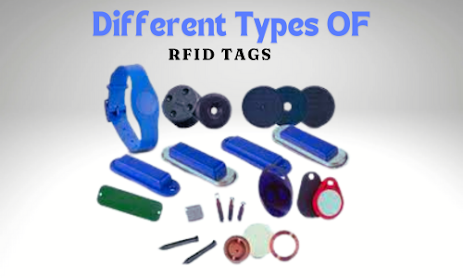How to Choose the Right RFID Scanner for Your Inventory Management
Efficient inventory management is crucial for any business, and RFID scanners play a significant role in streamlining this process. With many options available, choosing the right scanner can be daunting. This guide will help you navigate the key considerations and select the perfect RFID scanner for your inventory management needs.
Understanding RFID Technology
Before
diving into the selection process, it's essential to understand how RFID (Radio
Frequency Identification) technology works. RFID systems comprise tags,
readers, and software. The RFID scanner (reader) uses radio waves to
communicate with RFID tags attached to items in your inventory. This technology
allows for quick and accurate data collection, significantly improving
inventory tracking and management.
Key Factors to Consider
When
choosing an RFID scanner,
consider the following factors to ensure it meets your inventory management
requirements:
1. Range and Frequency
RFID
scanners operate at different frequencies (low, high, and ultra-high
frequency). The frequency affects the range and speed of data transmission.
- Low Frequency (LF): Suitable for short-range
applications (up to 10 cm), such as animal tracking.
- High Frequency (HF): Ideal for medium-range
applications (up to 1 meter), including access control and ticketing.
- Ultra-High Frequency (UHF): Best for long-range
applications (up to 12 meters), making it perfect for inventory management
in warehouses.
2. Environment and Durability
Consider
the environment where the RFID scanner will be used. If your inventory is
managed in harsh conditions (e.g., extreme temperatures, dust, moisture), opt
for a rugged and durable scanner. Look for devices with an IP (Ingress
Protection) rating that indicates their resistance to environmental factors.
3. Portability and Ergonomics
Depending
on your operational needs, you may require handheld or fixed RFID scanners.
- Handheld Scanners: Provide mobility and
flexibility, allowing staff to move freely while scanning items.
- Fixed Scanners: Ideal for static
installations, such as conveyor belts or entry/exit points, where
continuous scanning is required.
Ergonomics
is also crucial for handheld scanners to ensure they are comfortable for
prolonged use.
4. Read Speed and Accuracy
Efficient
inventory management depends on the speed and accuracy of the RFID scanner.
Look for devices that offer high read rates and accuracy, especially if you
handle large volumes of inventory. This ensures quick data capture and
minimizes errors.
5. Integration and Compatibility
Ensure
that the RFID scanner integrates seamlessly with your existing inventory
management system. Compatibility with your software and hardware infrastructure
is vital for smooth operations. Check if the scanner supports common communication
protocols and can easily connect to your database.
6. Battery Life
For
handheld RFID scanners, battery life is a critical consideration. Choose
scanners with long-lasting batteries to avoid frequent recharges and
interruptions during inventory processes. Some models also offer replaceable
batteries for extended use.
7. Cost and Budget
It's
important to consider your budget when making a decision, although cost
shouldn't be the only determining factor. Evaluate the total cost of ownership,
including initial purchase price, maintenance, and potential upgrades.
Investing in a high-quality RFID scanner may have a higher upfront cost but can
save money in the long run by improving efficiency and reducing errors.
Popular RFID Scanner Models for Inventory
Management
Here are
a few popular RFID scanner models that are well-suited for inventory
management:
- IDT RHC72: IDT RHC72 is an android-based
rugged portable scanner specially designed for hassle-free scanning of
items. This device is
packed with features and offers best-in-class ease of use and integration
tools, combined with a powerful RFID engine. It delivers exceptional
performance in demanding scanning environments such as logistics, warehouse management,
manufacturing, retail solutions,
and asset tracking. Additionally, it can be equipped with either an E710
or R2000 linearly or circularly polarized antenna, enabling it to read
tags in bulk from long distances.
- IDT RH160IDT: RH160 is a versatile UHF scanner
that supports UHF RFID as well as 1D/2D scanning. It is integrated with a
self-developed Impinj E310 chip-based UHF module that provides outstanding
tag reading performance with a maximum reading range of 30 cm. Experience high-performance
barcode scanning with our advanced scanner, capable of reading various 1D
and 2D barcodes. This versatile
device is suitable for a wide range of applications, including retail,
inventory, warehouse, logistics, and manufacturing. With its powerful
capabilities, the IDT RH160 is an excellent choice for businesses that
require reliable and efficient scanning technology.
- The IDT
RHC4050 is an extremely durable and rugged RFID reader that operates
on the Android platform. This device is specifically designed to deliver
exceptional RFID performance with a read range of over 10 meters, making
it the ideal choice for bulk reading operations. This versatile
RFID reader is an excellent choice for a wide range of industries,
including Logistics, Retail, Warehousing, Energy, Industrial Management,
Livestock Management, and more. With its seamless integration
capabilities, the IDT RHC4050 is a powerful asset for any business,
delivering top-tier performance and durability in even the most demanding
environments.
- Conclusion
Choosing
the right RFID scanner for your inventory management involves evaluating your
specific needs and considering factors such as range, durability, portability,
read speed, integration, battery life, and cost. By understanding these
elements, you can make an informed decision that enhances your inventory
processes, improves accuracy, and boosts overall efficiency.
For more
insights on inventory management and the latest in RFID technology, follow our
blog and stay updated with industry trends.
For any
Inquiry Call Us On - 9910885043




Comments
Post a Comment